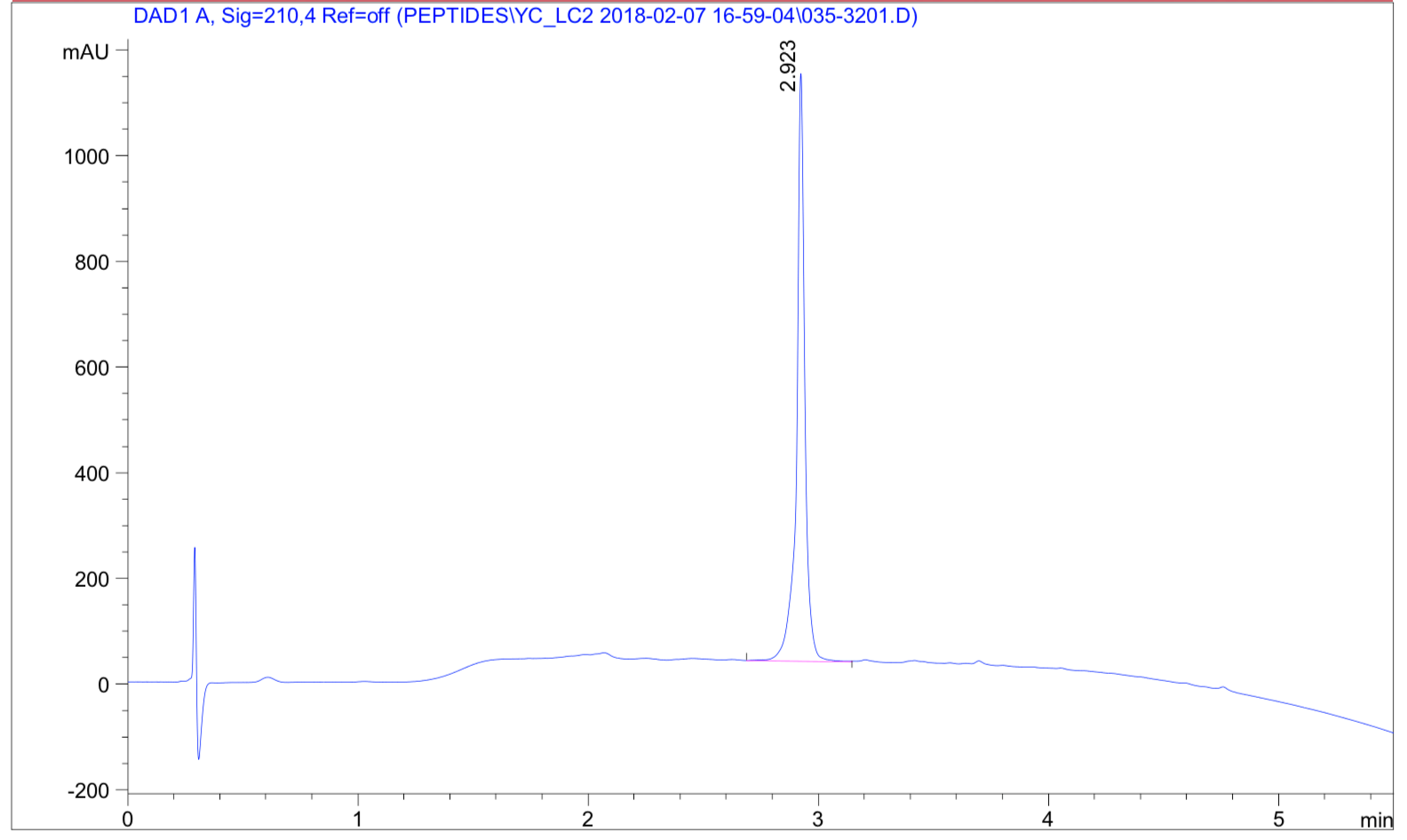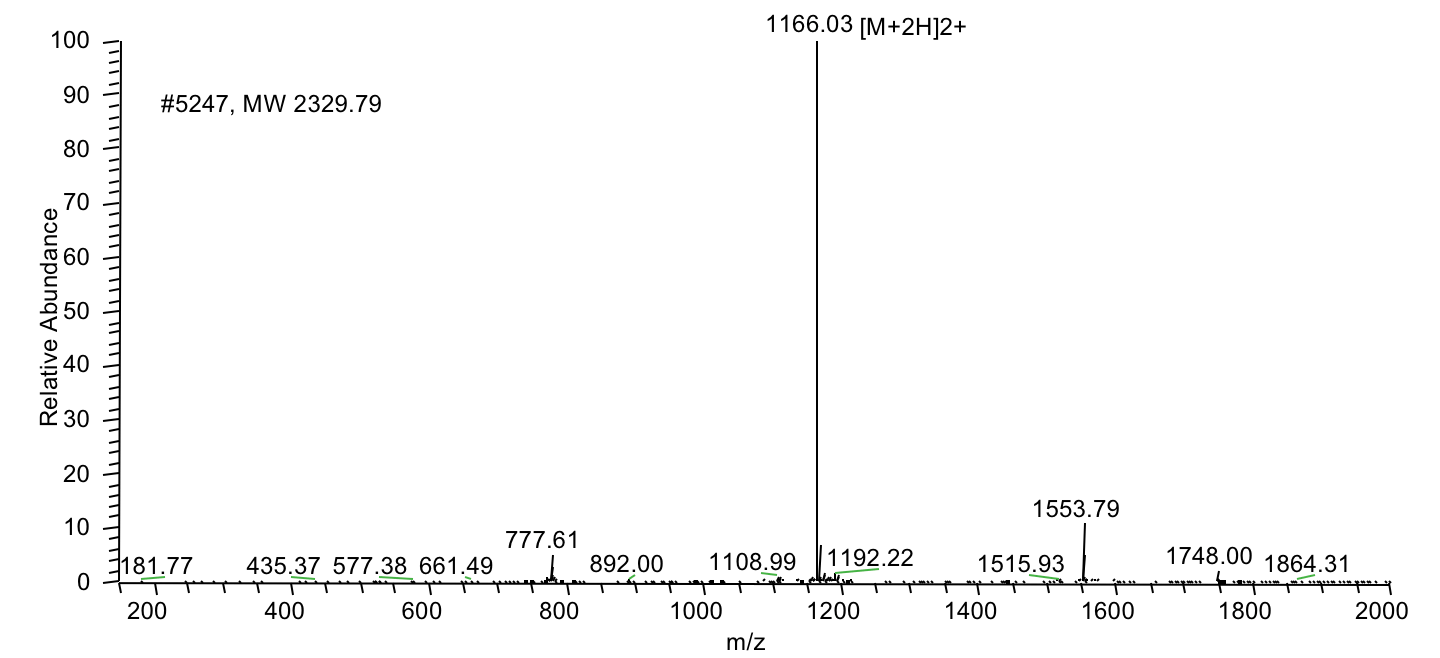Microwave Synthesis: Advancing Efficiency and Precision
Microwave synthesis, a revolutionary method employed by LifeTein, facilitates rapid and straightforward peptide synthesis. This technique harnesses the power of microwaves to instantly heat solvents or amino acids in solution through dipolar rotation or ionic conduction. The result is a more efficient, precise, and safer mode of heating, particularly beneficial for synthesizing peptides.
LifeTein’s implementation of a bio‑inert HPLC system provides your research team with exceptional benefits—offering superior recovery, improved sensitivity, and reliable peak consistency. The system ensures robustness under harsh buffer conditions and complex labeling chemistries, while minimizing contamination and supporting multiple chromatographic methods with high throughput. With this advanced technology, LifeTein is able to deliver higher-quality peptides, peptide–protein conjugates, labeled molecules, and other modified biomolecules—all backed by stringent quality control and reproducible methodologies.
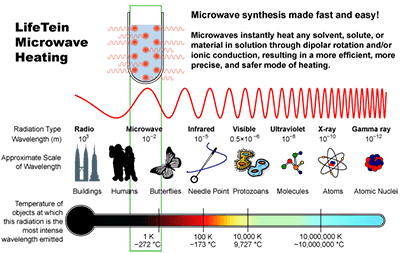
 |
LifeTein has successfully utilized our proprietary technology to produce peptides exceeding 100 amino acids. Our notable achievements include a 76aa BfUbb peptide, a 97aa peptide mB Box-97syn, a 133aa SHT peptide, and a 169aa long peptide. |
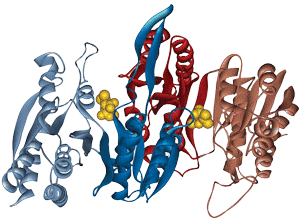
Introducing Peptide Oligonucleotide Conjugate. Click here for more details.
Conventional Solid-Phase Peptide Synthesis (SPPS) typically involves long coupling times, extended deprotection periods, multiple washing steps, and Kaiser tests for acylation confirmation. This time-consuming process becomes especially challenging when synthesizing complex peptides, such as beta-amyloid or large enzymes, where on-resin aggregation can occur. LifeTein addresses these challenges with a platform designed for rapid assembly of multiple peptide fragments using native chemical ligation and the heating method of microwave technology.
LifeTein's PeptideSyn technology offers a practical platform for synthesizing long peptides for research and pharmaceutical purposes. This technology has been employed for in-house testing of various biologically active peptides and enzymes, including those containing D-amino acids or pseudoproline dipeptides. The flexibility of PeptideSyn technology allows the selection of efficient coupling reagents, such as HBTU, HATU, HCTU, ByBroP, BOP, PyBOP, and TBTU, ensuring rapid SPPS.
Case Study: Efficient Synthesis of Amylin and Beta-Amyloid Peptides
In a study utilizing PeptideSyn technology, the synthesis of Amylin (1 - 37), human {KCNTATCATQRLANFLVHSSNNFGAILSSTNVGSNTY (Disulfide bridge: 2 - 7)} and human beta-amyloid (1-42) (H-DAEFRHDSGYEVHHQKLVFFAEDVGSNKGAIIGLMVGGVVIA-OH) using HCTU as an activator required a mere 15 hours of synthesis time, producing peptides of similar purity to those generated using traditional lengthy synthesis methods. Coupling yields for the peptide segment were an impressive 90–95%, showcasing the efficiency of PeptideSyn technology.
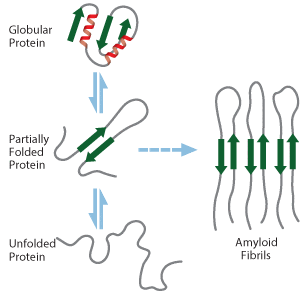
LifeTein's PeptideSyn technology, incorporating appropriate coupling and deprotectant reagents linked to the correct resin, ensures a reduced total peptide synthesis time and enhanced quality. Our commitment to innovation allows us to meet the diverse needs of our customers efficiently.
Case Study: In a specific case, a client requested the synthesis of a highly hydrophobic 68-amino-acid peptide at 85% purity with a fluorescent FITC modification at the N-terminus. LifeTein successfully delivered this challenging synthesis within a remarkable timeframe of 2 weeks, highlighting our capability to efficiently address complex peptide requirements.
